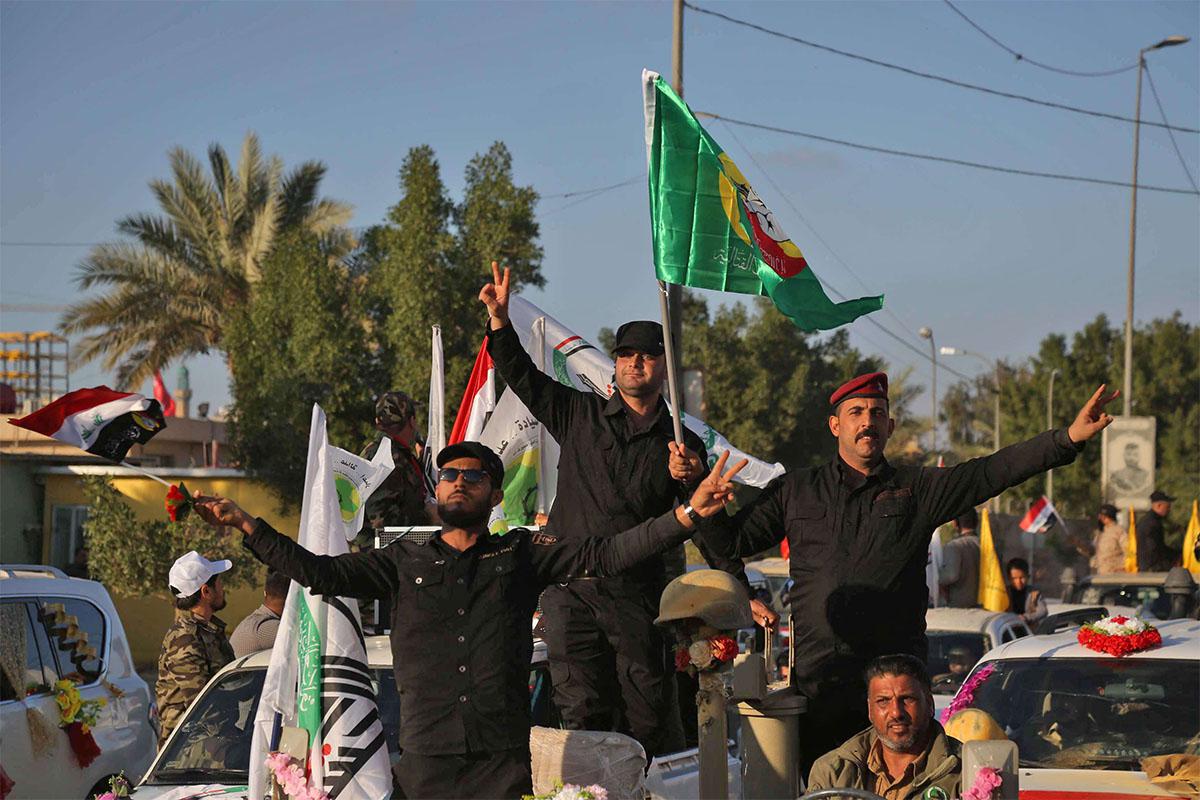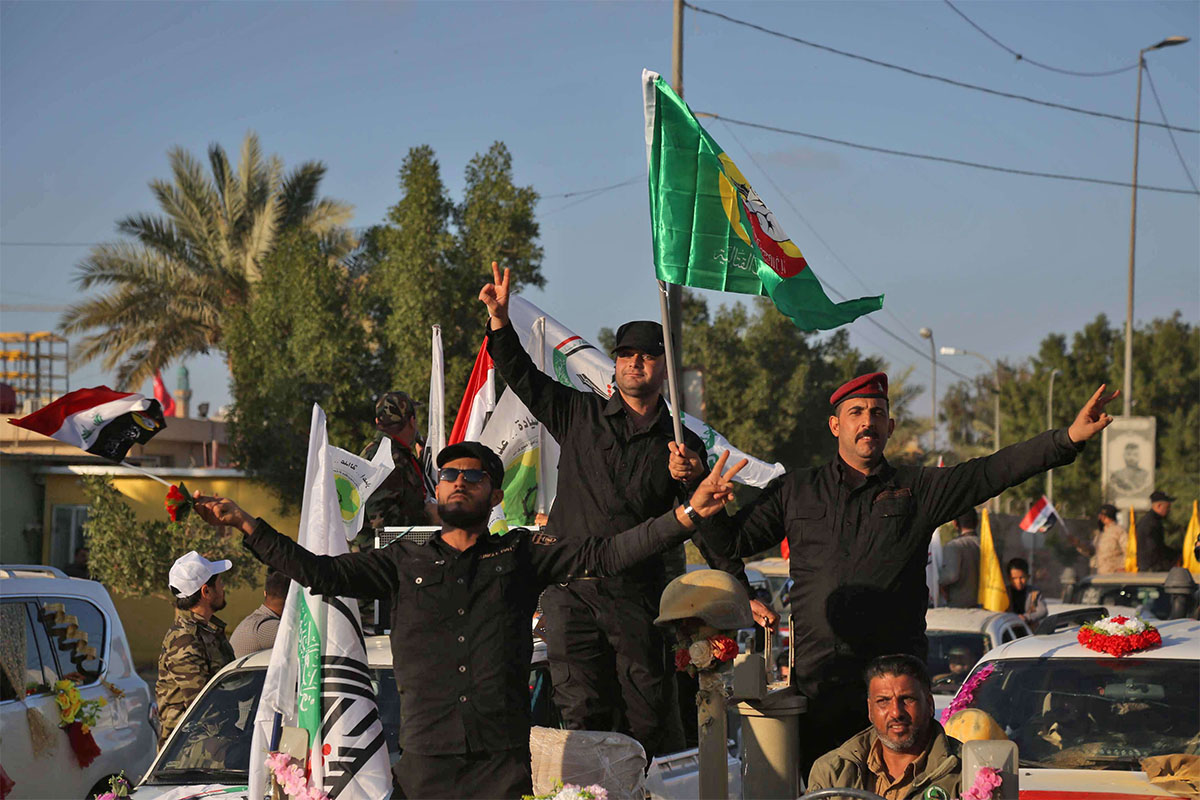Troubled relations between the US and Iraq's PMF
Since the election of May 2018 in Iraq, the US has suffered from many setbacks in this vital country. Establishing al-Fatah coalition, which belongs to the Iraqi popular mobilization forces (PMF), was the hardest shock that Washington had not wished to face.
Al-Fatah did well in that election as a result of its role in countering the threat of IS, which increased its popularity among the Iraqi Shiites. So, many voters had chosen al-Fatah list to become a new player in the Iraqi political life.
The US believes that PMF forms a substantial threat to its presence in Iraq. This has added further tension to their relations.
The Trump administration had asked the previous Iraqi prime minister Haider al-Abadi to prevent PMF from participating in the election.
The Americans were sure that PMF's candidates would get numerous parliamentary seats that they would be able to decide on many important Iraqi issues. Hence, they tried to undermine the power of PMF, but they failed to reach that goal. Later, this has left many consequences for the American interests in Iraq.
Presently, PMF is looking for passing a parliamentary proposal calling for the withdrawal of the American troops from Iraq. PMF's representatives have started their campaign to mobilize the other Parliamentary members to vote in favour of this project.
Thus, it is expected that al-Fatah and Sairoon coalitions would cooperate to get the Iraqi parliament's approval for this step. For many reasons, there is an Islamic ideology inciting people to hate the American presence in the Arab and Muslim world. The US could not change this hostility against its military bases. So, this project will be greeted by many legislators.
This will put the new Iraqi prime minister Adel Abdul-Mahdi in an embarrassing position. If he ratifies this decision, he will be viewed as a hostile person to the American policy in this part of the Middle East.
Furthermore, the American policymakers would consider him as a pro-Iranian leader. This would make him in a direct conflict with the American conservatives who want to restrain the Iranian role. Till now, it seems that Abdul-Mahdi is not yet ready to face this scenario or its results.
On November 4, the US imposed the hardest sanctions against Iran. It decided to strangle the Iranian economy so that Iran is obliged to amend its political behavior in Iraq. It thinks that such economic constraints will leave various effects on the trade volume between Iran and Iraq, which reaches to more than $13 billion a year. Washington asserts that such a resolution will decrease the Iranian ability to support PMF. Later, as the Americans believe, this will weaken the strategic power of PMF in Iraq.
However, some armed factions of PMF called for attacking the American facilities in Iraq. They said that they would stand with the Iranian people against these unjust sanctions. This means that we might see a real confrontation between these two disputed players in the next months in case the US does not mitigate its decrees against the Iranian government. Therefore, Basra city is expected to be a ground to prove this hypothesis.
Lately, the US has increased its punitive measures against PMF. It has put some PMF's commanders on the list of internationally wanted persons. It said those persons were the cornerstone in the Iranian strategy in Iraq. Nevertheless, many experts affirmed that those tactics would not threaten the real future of PMF, which now controls the Iraqi political landscape.
To express its new policy against Iran, the American envoy to Syria James Jeffrey criticized Iran by saying that it is trying to extend its military dominance across the Arab region.
The Pentagon assumes that Iran attempts to create its axis extending from Iran to the Mediterranean sea through Iraq, Syria, and Lebanon. The Iraqi PMF and Lebanese Hezbollah represent the basic elements of this geopolitical thought that Donald Trump insists on resisting.
Besides, Trump has nominated a new ambassador to Iraq, Matthew Toler, who is considered more restrictive towards Iran.
In order to ease the anger of PMF, the Iraqi prime minister announced that he would increase the financial allocations of the PMF's fighters in the annual budget. Additionally, it is believed that he would appoint a figure who is not against the Americans to manage the PMF's authority.
Abdul Mahdi will have to make the best of his efforts to preclude the conflict between the US and PMF. If he fails, Iraq will be in the heart of the storm.
Diyari Salih is an Iraqi academic, Ph.D. in Political Geography, Baghdad, Post-Doctorate in International Relations, Warsaw, Focuses on the Geopolitical Issues in Iraq.







